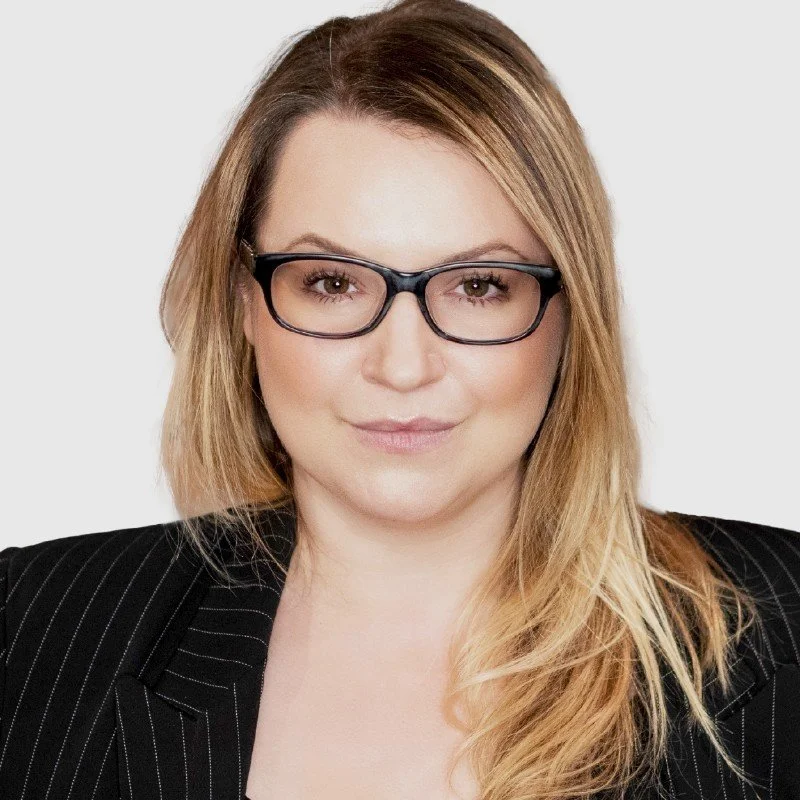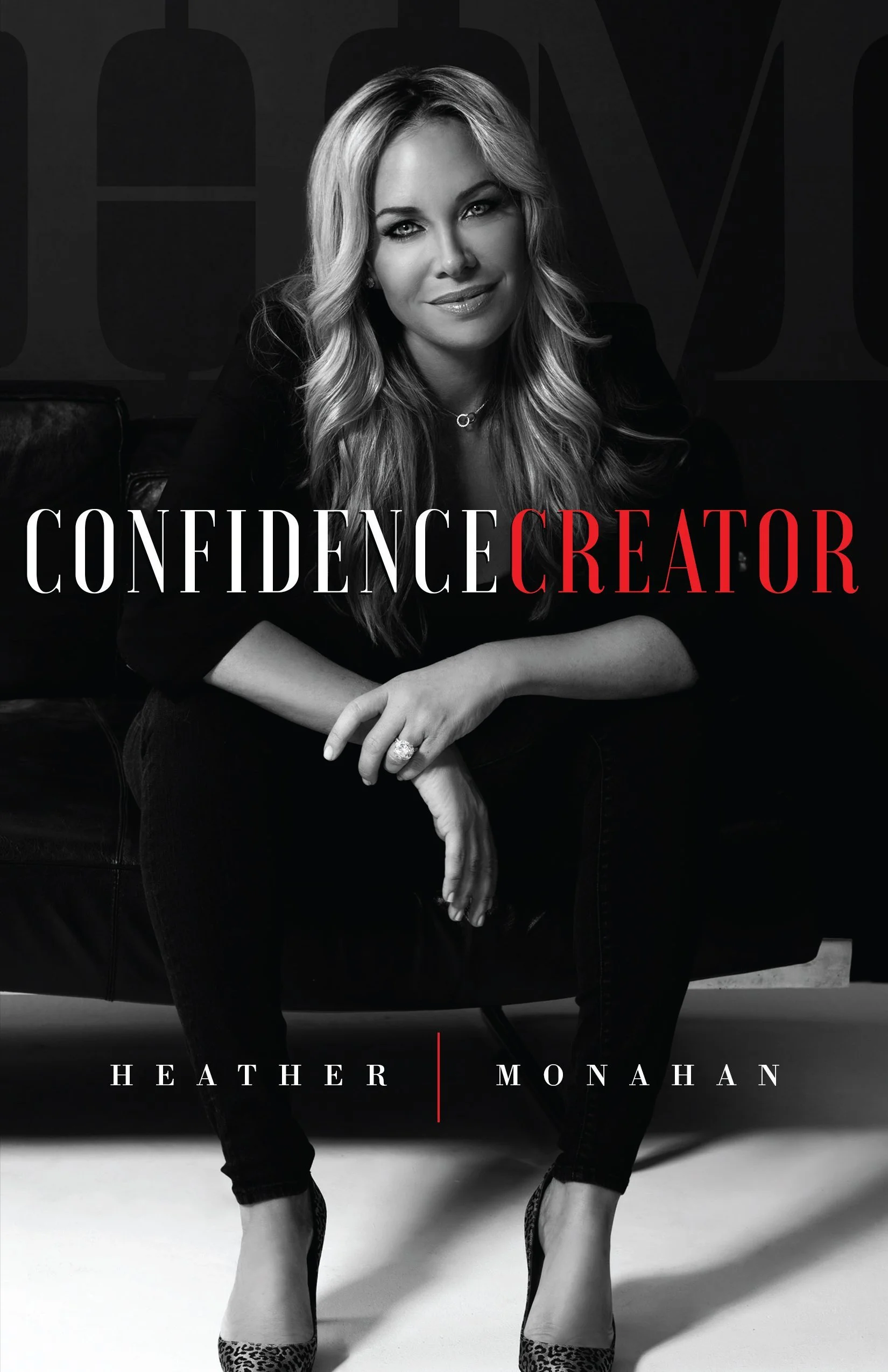Social Influencer Series | Rebecca Takada, CMO, Founding Member of Chief & Author
I caught up recently with one of my favorite Chief Marketing Officers - Rebecca Takada. Per usual, she has been busy as a bee, balancing her CMO responsibilities at Empire Selling with the writing and publishing of her very first book - Quite Ready.
𝗤𝘂𝗶𝘁𝗲 𝗥𝗲𝗮𝗱𝘆 is a chronicle of what gets left behind on the journey to the top. It's a story about how a girl from rural Tennessee moved halfway around the world to Japan, then to the Big Apple, and visited everywhere in between in search of her identity. This memoir explores the intersections of overcoming childhood adversity, the devastating effects of forced positivity on mental health, and the true price of success at all costs. But it’s also a story of family, the power of hope, the traveler’s dream of a better life, and finding the humor in pain.
When I met, Rebecca she was a “bad-ass”, globetrotting tech CMO. She opened the Tokyo offices of a unicorn start-up (first APAC Employee) and came back to NYC to help make them public ready for their initial public offering. She was a founding member of Chief - which is the only private membership network focused on connecting and supporting women executive leaders. I was so impressed her and the work that Chief is doing for women in technology, I reached out to introduce my daughter who is a second year Computer Science major at UVA.
As busy as she was - she had time to mentor and to sit down with me for a quick interview. Here is a snapshot of what she had to say:
Your first book Quite Ready, is a powerful story of what gets left behind on the journey to the top. Big wins. Hard falls. New beginnings. What do you hope people get out of their experience reading your book?
My purpose for writing the book was to start a conversation. I want readers to take away that it’s worth slowing down to take stock of who we are and where we came from, particularly if some of our old memories are painful. Adverse childhood experiences, for example, program us to engage with the personal and professional world in ways that sometimes don’t serve us. On the other hand, quite often, these experiences can make us really powerful at doing things that others may find challenging.
My hope for the book is that it helps people feel seen and that they’re not alone in their journey to find a better life. It’s my story, but it’s also the story of many people I know.
I try not to take myself too seriously, and the writing reflects that. The topics are heavy but handled with levity because, at the end of the day, people want a good story. If they take a lesson away from it as well, even better.
In the book, you talk about mental health and the challenges of overcoming extreme burnout. How did you do it?
By establishing boundaries and adhering steadfastly to them. I practice not canceling on myself anymore, but it’s an everyday challenge.
We burn out when we don’t impose personal boundaries on our work life. For years I was setting myself on fire to keep others warm, putting the needs of the company before my own. I thought it was an honorable thing to do. I now realize how wrong I was – not just for me – but for my direct reports and managers.
I’m a firm believer that there’s no growth without hard work. But there’s a reason elite athletes don’t skip their ice baths and massages. They have it drilled into their routine that their bodies and minds need rest between matches in order to maintain peak performance. We should apply the same principles to ourselves.
These days I try and view every twelve months as a series of sprints, jogs, and water breaks. For example, I have a big sprint coming up with Empire these over the next quarter or so, so I’m currently planning where my jogs and water breaks will be immediately thereafter. I’m lucky to have a CEO who really gets that dynamic.
I find this method particularly important if you’re in a high-stress job like senior executive or sales where the pressure can feel unrelenting. To be truly competitive, you have to know when to slow down to speed up.
Your career in tech has taken you around the world. You are now CMO of Empire Selling and a founding member of Chief. What advice do you have for young women in tech just starting out?
Take care of yourself mentally and physically. If you’re lucky, you’ll have that body for the next 50+ years.
Be a learn-it-all, not a know-it-all. Growth stops at your comfort zone.
Don’t shy away – be it from hard work or taking up space.
Relentlessly build your network. Trust me, you’ll need it as you move up the career ladder. It gets lonely at the top, which is why Chief has been such a blessing for so many of us.
Never forget the humans behind the tech: the developers who program through the night to meet a tight release deadline, your managers and colleagues who’re doing their best in their own way, and most importantly, your customers.
Can we talk about Chief for a moment? What is the mission of Chief, and how do women in leadership become part of it?
Chief’s mission is to “change the face of leadership” by driving more women to the top and helping them stay there. They achieve this by helping women executives strengthen their leadership skills, expand their influence among fellow executives, and pave the way to bring others along.
The last point for me is one of the most important. In order to become a member, it’s not enough to just be a powerful female executive. You also have to have experience and be a firm believer in the privilege of leadership, which is that you exist to elevate others who are coming up behind you.
It’s been an honor and a privilege to be a part of this incredible and steadily expanding group of women. Every single one of them has busted their ass to achieve what they have. You have to remember that, for many of us, our mothers came up during a time when they were expected to serve tea to the men in the office, and their grandmothers weren’t even allowed to open a bank account without the consent of their husbands.
Women have come a long way, but we’ve got a much longer way to go. That’s where Chief becomes so important. A rising tide lifts all boats, and that’s exactly what we’re here to do.
In the new world order, post-pandemic - we have a remote-first and hybrid world to navigate. What advice would you give to people coming up in their careers to navigate and find their success? Is it harder now or just different?
I think it’s just different. You’re always going to have the high-effort folks who just get it and therefore move up quickly and the low-effort ones that will coast until they get caught. Then there’s the majority of the workforce that is always somewhere in the middle.
I’m a massive advocate for remote work options and believe they’re an obvious offering for companies looking to attract top talent. They’re a privilege, however, not a right, and I don’t believe everyone benefits from them in the same way.
I spent a few months of my first corporate job working remotely, which was not good for my anxiety. I had no idea how to manage my time and tasks or if I was doing anything right because I had no one nearby to ask. I was brand new to corporate life, so I didn’t have the experience or wisdom to know how to be truly effective.
Young professionals just starting out really benefit from being physically near their coworkers. It’s a critical time for them to be overhearing conversations and soaking up the tribal knowledge that will help them advance. They need to be building their internal networks, and that’s easier when people are geographically nearby. Finally, in order to be a great manager later in their career, they need to bump up against personalities different from their own in close quarters. That’s the only way to learn how to work with contrasting personas.
On the other hand, I believe remote-first and hybrid roles most benefit professionals who are mid-level and above in their careers. These people have young families and aging parents that they have to account for during their waking hours, and therefore they need more flexibility in their schedules. They’ve come up through the in-office grind and have enough experience to know how to be productive on their own.
Speed Round:
Celebratory Cocktail? Very Brut Champagne.
Book you are reading? The Challenger Sale, by Matthew Dixon and Brent Adamson
Book you are gifting? Mine!
Best advice you've gotten for self-improvement/personal success?
Nothing worth having in life comes without a fight.
Inspirational hashtag? #LetsDoThis
About the Interviewer:
Mark Keaney is a Husband, Dad, Coach, Mentor and Leader. With over 20 years of experience in the media industry and a wild ride in the world of tech start-up & social - Mark is helping brands deliver world class CX at Khoros, where he is the Vice President of Sales for North America. His mantra is - Brand Globally. Market Locally.
email: markkeaney8@gmail.com or twitter: @markkeaney2pt0






